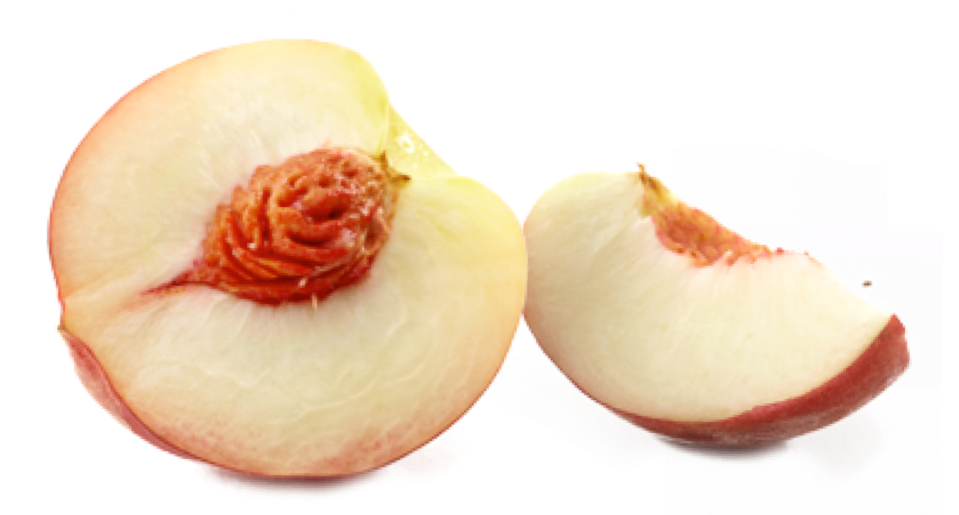- All
- Industry Trends
- Biodegradable Packaging Materials
- News
- Biodegradable Alternatives to Microplastic
- Embracing Circular Economy: Profitable Sustainability for Modern Companies
- Olive Stones or Walnut Shells? Pros and Cons in a “Nutshell”
- Glossary
- BioPowder Launches Application Lab For Bio-Based Coating Formulations
1. Definition of Agricultural By-Products
Agricultural by-products are the non-primary goods produced from farming operations, often viewed as waste or leftovers, from the process of cultivating crops and rearing livestock. As you would expect, these by-products encompass a wide range of materials including straw, husks, plant stalks, skins, shells, and inedible parts of plants and fruits.
The underutilisation of agricultural by-products is a matter of considerable interest to the business sector, particularly those focused on converting waste into wealth. The utilisation of such by-products is beneficial not only from an environmental perspective by addressing issues of waste management, but also from an economic standpoint, turning waste into industrial raw materials or value-added products.
BioPowder, for instance, capitalises on this notion, processing agricultural by-products into biodegradable powders and granules that can serve a variety of applications, from cosmetic products to industrial abrasives. Our emphasis on responsible sourcing and sustainable processing gives them a competitive edge.
By-products from agriculture, when efficiently harnessed, can result in high-quality products and services that are more nature-conscious. Companies can find innovative ways of repurposing these by-products, thereby promoting a circular economy. The importance lies as much in the strategic alignment of objectives as in the technicalities of processing these abundant resources. This prevailing shift is reshaping the perception of agricultural by-products, not seeing them as waste, but as valuable secondary profits. Firms that can explore these residual resources could realise countless opportunities.
2. Classification and Types of Agricultural By-Products
Investigating the multifaceted realm of agricultural by-products reveals a significant categorisation that appreciates their inherent value and multifunctional utilisation capabilities. Recognising this potential for waste-to-wealth transformation enables companies to implement sustainable strategies, contributing to circular economy principles.
Broadly, agricultural by-products can be categorised into primary and secondary types, largely determined by their point of occurrence in the production process.
- Primary by-products refer to the residual elements that emerge post-harvest. These primarily include straw, husk, cob, tops, foliage and crop residues. Traditionally, primary by-products have served purposes as fodder for livestock or were left to decay, enhancing soil fertility. However, scientific advancements have allowed corporations to convert these materials into valuable commodities. As a demonstration, BioPowder utilises such residues to produce high-quality, natural powders and granules potentially applied in numerous industries.
- Secondary agricultural by-products originate from post-processing of primary farm produce into consumable forms such as grains, fruits, and vegetables. The remaining materials, like husk, shells, peels, pulp, and seeds, are classic food by-products examples. Seeking ways to re-purpose these elements, BioPowder transforms them into industrial-grade components for various applications, achieving the paradigm shift from waste to value.
- Further typification features the chemical composition and characteristics as core determinants. This classification is instrumental in deciding their subsequent uses and helps ensure optimal exploitative methods, avoiding wastage. This mostly involves division into carbohydrate-rich, protein-rich, or lipid-rich by-products.
In this light, understanding agricultural by-products' classification and types assists businesses, especially those seeking sustainable and environmentally-friendly options, to intelligently tap into this resource. Companies like BioPowder exemplify innovative use of such by-products, catering to their audience's needs while preserving environmental integrity. A wise approach towards these overlooked agricultural resources raises incredible possibilities for ingenious applications and sustainable practices.
3. Extraction and Processing of Agricultural By-Products
Extraction and processing of agricultural by-products can yield a significant wealth of materials valuable to industries.
- To capitalise upon these by-product resources effectively, the first step involves careful selection and sortation of the raw materials. The heterogeneity of agricultural by-products demands a rigorous categorisation based on their chemical compositions, physical properties, and potential applications. For instance, the husks are processed differently from the stems or the leaves.
- Furthermore, the key to efficient extraction lies in adopting sustainable yet proficient techniques such as mechanical pressing or solvent extraction. These methodologies help maintain the valuable nutrients and functional components present in the agricultural by-products.
In essence, BioPowder's strategic, informed, and innovate approach ensures that the extraction and processing of agricultural by-products transform potential waste into wealth.
4. BioPowder: Utilisation of Agricultural By-Products for Natural Powders
BioPowder's commitment to environmental sustainability extends beyond the manufacturing process and into our products. Capitalising on industrial symbiosis, BioPowder utilises Agricultural By-Products to create natural powders and granulates of exceptional quality.
Such an approach serves two interconnected purposes:
- Firstly, it helps in reducing waste generated from agricultural activities, contributing to a more sustainable agricultural sector.
- Secondly, it provides an eco-friendly alternative for companies seeking to reduce their carbon footprint while maintaining high product quality. Agricultural by-products transformed into powders and granules have become essential components in various industries, including cosmetics, pharmaceuticals and food.
The diversity of agricultural by-products, such as husk and seeds, allows BioPowder to create a wide range of unique natural powders. We use olive pits, almond shells, peach stones, pistachio shells, avocado stones, apricot stones, argan shells, and walnut shells. Each variant carries unique properties influenced by its agricultural origin. They further undergo comprehensive screening and quality checks to maintain consistency and quality.
A noteworthy tip to leverage the efficacy of these powders is to understand their characteristics. A keen insight into their moisture absorption, particle size, or oil-binding capabilities can help companies pinpoint the exact type of powder that will enhance their product formulations.
Investing in BioPowder is not merely an ecologically sensitive choice. It is a strategic move that amplifies product quality while contributing to global efforts towards sustainability. By harnessing the untapped potential of agricultural by-products, BioPowder creates an equilibrium of environmental responsibility and industrial efficiency.
Discover our diverse product range and see how they can benefit your industry. Contact us to learn more. Adopt a solution that enhances material durability and meets the highest sustainability standards.
5. FAQ for Agricultural By-Products
What is an example of an agricultural by-product?
Agricultural by-products refer to the residual materials that are produced during agricultural processes, such as crop cultivation and livestock farming. These by-products are typically not the primary focus of production but are still obtained as a result of agricultural activities. Some common examples of by-products include crop residues (such as corn stalks or wheat straw), fruit and vegetable peels, and food processing waste. Agricultural by-products are often considered valuable resources as they can be recycled or repurposed for various applications, reducing waste and environmental impact.
What are the byproducts of crops?
Agricultural crop by-products are essentially materials that are not the primary product sold for human consumption or industrial use. They typically include crop stalks, leaves, shells, husks, and in some instances, non-edible parts of the plant such as roots.
Agricultural by-products are generated in significant quantities and can potentially be valuable resources if utilised effectively. For instance, in the realm of agriculture, these by-products are often used for animal feed or as organic compost to enrich the soil. In the sector of bioenergy, they can be a source of biomethane and bioethanol through various conversion technologies.
Meanwhile, BioPowder, an innovator in the sustainable manufacturing industry, is revolutionising the use of agricultural crop residues. Transforming these materials into natural powders and granulates, BioPowder adds value to crop by-product utilisation, addressing the needs of firms seeking green and sustainable alternatives in their production processes.
Where do byproducts come from?
Agricultural by-products originate from the cultivation and processing of crops, as well as from livestock and dairy farming. These materials deemed residual or secondary, are, in fact, valuable resources, often repurposed for numerous applications.
For instance, during grain processing, by-products like husks, bran, and straw are generated. These can be ingeniously transformed into other useful commodities like biomass energy, compost, or even used in the textile industry. Hence, it’s clear that agricultural by-products are a treasure trove of untapped resources, originating from everyday farming and food by-products.
Why are byproducts important?
Agricultural by-products play a vital role in the sustainability and efficiency of farming and industrial practices. Companies and agricultural entities often generate these secondary or incidental products through their primary production processes. By-products not only have economic value, but they also present an array of environmental benefits. One of the chief reasons for the importance of by-products is their role in waste reduction. Instead of discarding these residual elements, using them as useful products helps in mitigating waste, promoting recycling, and conserving resources. Similarly, the repurposing and reuse of agricultural remains, such as crop residues for producing natural powders and granulates, reflect a successful implementation of the "zero waste" and "circular economy" principles. As in the case of BioPowder which produces natural powders and granulates from agricultural by-products, harnessing these residuals can lead to low-cost, high-value products, effectively maximising revenue streams. Moreover, many by-products, if managed correctly, can be turned into inputs for other agricultural or industrial processes. These sustainable practices provide a means for companies to contribute positively to the environment while meeting their objectives.

